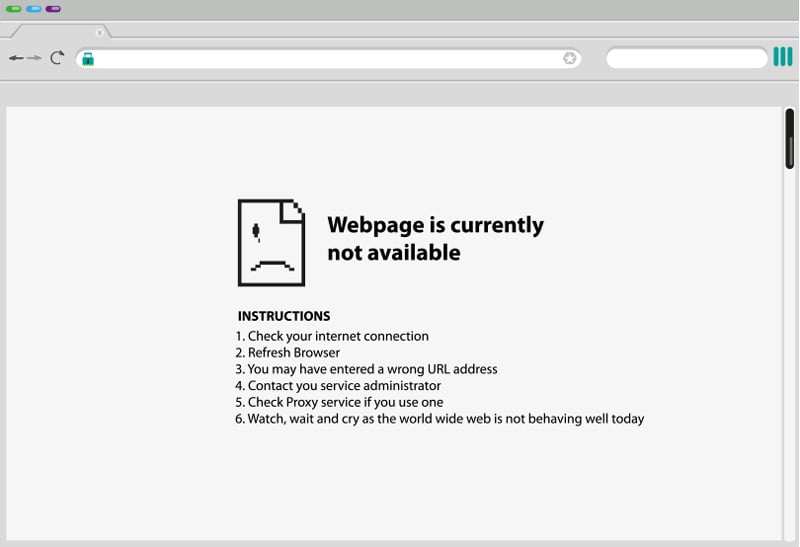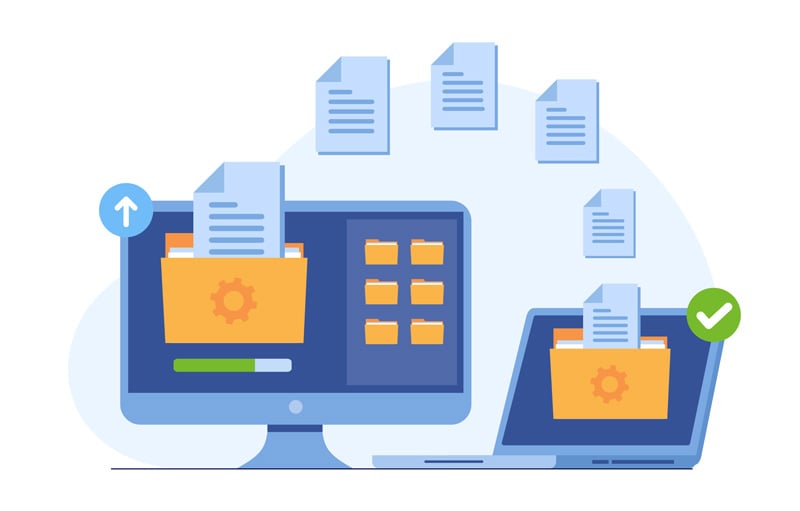Most of us are familiar with the basic upkeep required to keep our cars and homes running smoothly. We take care of tires and air pressure and make sure the lights stay on. For those who want to keep their websites running, there is a similar list of services that need to be taken care of.
Website maintenance services include regular updates and fixes that keep your site working properly. It may include general clean-up and upkeep, minor changes such as adding a contact form or redesigning pages, or more substantial changes that might include the introduction of new features or functionality.
It's not a new concept, but it's one that many companies overlook.

Why You Should Care About Website Maintenance
Some people think a website is a static object, not a living, breathing, changing organism.
But, of course, a website is a living, breathing, changing organism. And, if you’re not aware of it, or even worse, you ignore it, then it could end up costing you money. It could cost you time. It could cost you business.
And, if you want your website to be as successful as possible, then you need to consider its ongoing health.
Website maintenance should be a priority for everyone who owns or operates a website. This includes small businesses and larger companies alike. In fact, many organizations spend more money on maintaining their website than they do on their primary website.
Website maintenance helps reduce the potential for downtime and other performance-related issues.
If you're a small business owner, don't skimp on website maintenance. The impact is huge.
What Happens When You Don’t Maintain Your Website
Website maintenance is an integral part of running a successful website. A website that has never been maintained, maintained poorly, or maintained carelessly may be able to perform for a short period of time. However, as time goes by the performance of your website will degrade. As soon as the website starts to degrade, there are three stages that can occur:
1. Degradation: The website slowly begins to lose functionality. Pages may not load properly, images may no longer display, or text may not be displayed at all.
2. Failure: Once the degradation has reached a critical level, a page will not load. The site becomes entirely inaccessible and any functionality it once offered is lost.
3. Abandonment: The website becomes unresponsive and no longer displays anything at all. The site becomes an empty shell of what it once was. The only thing left standing is a broken link back to the domain owner.
Once you’ve reached the failure stage, the only options left are to either pay someone to fix it or take the site offline. Even if you are willing to spend money on repairs, it may not be enough to keep the site functioning at its peak.
What are the types of Website Maintenance?
Website maintenance is a broad term used to cover a variety of different services.
It’s a common misconception that website maintenance is a simple task. The truth is that there is no “one size fits all” solution for website maintenance.
The goal of a website maintenance plan is to address these issues and help websites run as efficiently as possible. Website maintenance typically covers the following areas:

Technical Issues
A website only works as well as the technology behind it. We use Wordpress for almost all of our websites and it REQUIRES technical/code updates every few months. From core Wordpress changes to plugin updates, these need to be updated for many reasons. And that goes for almost any website.
Along with code issues, server and other issues can have a big impact on your website. You'll want to continually monitor these to make sure there are no issues.
Regular maintenance and updates are necessary to ensure your website is up to date, which ensures continuous and efficient running of your website.
Content Quality
There's nothing worse than having a broken link on your website - you don't want to be sending visitors to URLs that don't exist. That's an easy way to lose business. Or, a typo?
There's also SEO to take into account here. Your content should be optimized and always evolving to help search engines understand your website and business better.

Security
Hackers are everywhere and will always try to find ways to compromise websites. There should be standard scanning and monitoring installed on your website or server to help prevent breaches.
If you run a business that has customer data, then you do need to keep it safe from any kind of threat. Hackers can get access to your customers' information and use it against you. They can even change their passwords and make it impossible for you to get in touch with them.
Another security risk is that hackers can gain full control of your website and redirect it to something completely different - definitely, somewhere you don't want your customers going.

Loading Speed
Generally considered a technical issue, this is so common that I had to break it out into its own section. Loading speed times need to be under 3 seconds. Ideally under 2. If your website takes longer than that, people will leave your website.
Downtime Prevention
If your website doesn't work at all - well, we all know that's not a good situation. Website maintenance should actively check for website downtime and do whatever it can to make sure everything is set up to prevent it.

Backups
This one is a no-brainer. Your website needs to be backed up in 2-3 places. It should include the files and database. This way, if anything catastrophic ever happens, you have a full backup and can restore your website from that.
How often do you really need website maintenance?
If you want to make sure your website is running the best it can, you'll want to invest in website maintenance. How often you'll need it really depends on the type of website and business you have. It also highly depends on what platform you're using - as that changes the types of maintenance you can do.
For e-commerce websites that get a lot of orders, I suggest daily backups and 24/7 monitoring so that you would never lose more than a day of orders. For low-traffic stores, maybe once-a-week backups.
For informational websites, regardless of traffic, you probably only need backups once a month and a check-in every few months. If your website changes a lot, definitely increase the backups schedule to be more frequent.
What is the cost of website maintenance?
Again, this really depends on the website and business.
We charge $85-1000+ per month depending on the website maintenance needed. Obviously, a high-traffic e-commerce site will be more expensive because it needs more work, more often. But a basic website will be on the lower end of the monthly fee.
